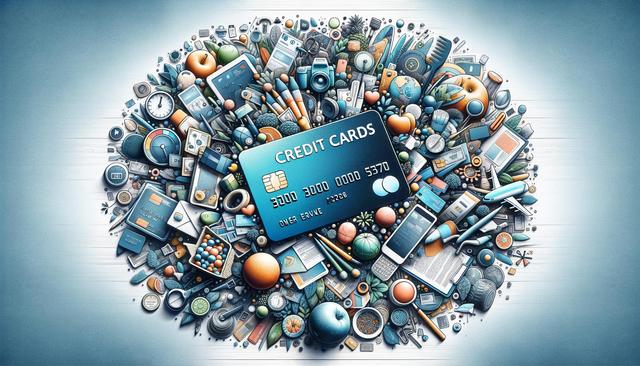What Is a Credit Card and How Does It Work?
A credit card is a financial tool issued by banks or credit unions that allows users to borrow money up to a pre-approved credit limit. This borrowed amount can be used for purchases, bill payments, or even cash advances. When you use a credit card, you’re essentially taking a short-term loan that you agree to repay either in full by the due date or over time with added interest. The issuer sends a monthly statement summarizing your balance, minimum payment due, and due date.
Understanding how credit cards work is essential to using them wisely. Each credit card transaction is processed through a network that verifies the availability of credit, approves the transaction, and records the amount against your balance. If paid in full each month, many credit cards offer a grace period during which no interest is charged on purchases. However, carrying a balance from month to month will typically incur interest charges, which can accumulate quickly.
Types of Credit Cards Available
There are several types of credit cards, each designed to meet different financial needs. Choosing the right credit card depends on your spending habits, financial goals, and credit history. Common categories include:
- Standard credit cards – Basic cards for everyday use with no frills.
- Rewards cards – Offer points, miles, or cashback on purchases.
- Secured credit cards – Require a deposit and are ideal for building or rebuilding credit.
- Student credit cards – Designed for young adults with limited credit history.
- Business credit cards – Provide tools and rewards tailored to business expenses.
Each type of card comes with its own set of features, fees, and benefits. For example, rewards cards may offer higher value in points but carry annual fees, while secured cards are a useful stepping stone for those with poor or no credit history.
Understanding Fees and Interest Rates
Credit cards can come with a variety of fees and interest charges that users should be aware of. These costs can significantly affect the total amount you pay if not managed properly. Some common fees include:
- Annual fees – A yearly charge for using the card, often associated with rewards programs.
- Late payment fees – Charged if you miss a payment due date.
- Foreign transaction fees – Applied to purchases made outside of your home country.
- Balance transfer fees – Incurred when transferring debt from one card to another.
Interest rates, also known as APR (Annual Percentage Rate), vary depending on the card and your creditworthiness. Cards often have different APRs for purchases, cash advances, and balance transfers. It’s important to read the fine print and understand how interest is calculated, especially if you plan to carry a balance.
Building and Maintaining Good Credit
Using a credit card responsibly can help you build a strong credit history, which is crucial for financial milestones such as applying for a loan or renting an apartment. Timely payments and keeping your credit utilization low are two key factors that influence your credit score. Here are some practical tips for maintaining good credit:
- Pay your full balance on time each month to avoid interest and penalties.
- Keep your utilization ratio below 30% of your total credit limit.
- Monitor your credit report regularly for errors or fraudulent activity.
- Avoid applying for too many cards in a short period, as multiple inquiries can affect your score.
Maintaining good credit takes consistent effort, but the benefits include access to better financial products and lower interest rates over time.
When and How to Use Credit Cards Wisely
Credit cards can be powerful tools when used correctly. They offer flexibility, security, and potential rewards. However, misuse can lead to debt and financial stress. To use credit cards wisely, consider the following:
- Use your card for planned purchases you know you can repay quickly.
- Set up automatic payments to avoid missing due dates.
- Take advantage of rewards programs that align with your spending habits.
- Be cautious with cash advances, as they often come with higher interest rates and no grace period.
Credit cards can also help in emergencies, when you may not have liquid cash immediately available. However, they should not replace a proper emergency fund. Establishing healthy credit habits early on can prevent future financial challenges and put you on a path toward long-term financial wellness.
Conclusion: Making Credit Cards Work for You
Credit cards can enhance your financial flexibility and help build a positive credit history when used responsibly. Whether you’re new to credit or looking to optimize your current usage, understanding the various types, fees, and best practices can make a significant difference. Consider your financial goals and spending behavior before choosing a card, and always prioritize paying your balance on time. With informed use, credit cards can become a valuable part of your personal finance toolkit.




Leave a Reply